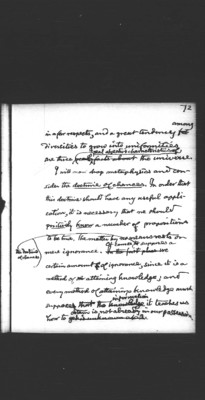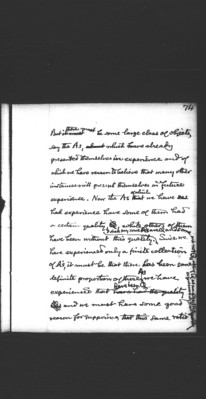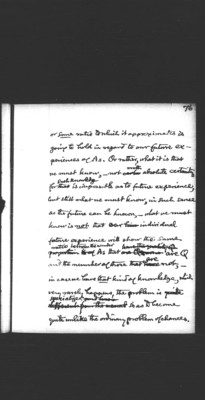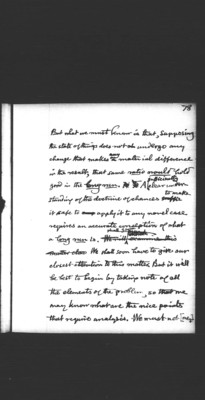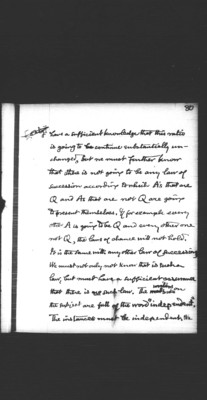Pages
36
72
in a few respects, and a great tendency among diversities to grow into uniformities are three real facts about objective characteristics of the universe.
I will now drop metaphysics and consider the doctrine of chances. In order that this doctrine should have any useful application, it is necessary that we should positively know a number of propositions to be true. The matter by no means rests on mere ignorance. Of course, the doctrine of chances supposes a certain amount of ignorance, since it is a method of attaining knowledge; and every method of attaining knowledge must suppose that the knowledge information it teaches us how to obtain is not already in our possession.
37
74
But there must be some large class of objects, say the As, which have already presented themselves in experience and of which we have reason to believe that many other instances wil present themselves in future experience. Now the As of which we have had experience have some of them had a certain quality, while others of them have been without this quality. I shall say some As are Q and some are not Q, noting Q as an adjective expressive of that quality. Since we have experienced only a finite collection of A's, it must be that there has been some definite proportion of those As we have experienced that have been Q and we must have some good reason for supposing that this same ratio
38
76
or some ratio to which it approximates is going to hold in regard to our future experiences of As. Or rather, what it is that we must know,— not with absolute certainty, for such knowledge is impossible as to future experience, but still what we must know, in such sense as the future can be known,— what we must know is not that our individual future experience will show the same ratio between the number of As that are Q and the number of those that are not;— in case we have that kind of knowledge, which very rarely happens, the problem is specialized so as to become quite unlike the ordinary problem of chances.
39
78
But what we must know is that , supposing the state of things does not undergo any change that makes any material difference in the result, that same ratio would hold good in the long run. A sufficiently clear understanding of the doctrine of chances to make it safe to apply it to any novel case requires an accurate conception of what a long run is. We shall soon have to give our closest attention to this matter. But it will be best to begin by taking note of all the elements of the problem, so that we may know what are the nice points that require analysis. We must not [only]
40
80
have a sufficient knowledge that this ratio is going to continue substantially unchanged, but we must further know that there is not going to be any law of succession according to which A's that are Q and As that are not Q are going to present themselves. If for example every other A is going to be Q and every other one not Q, the laws of chance will not hold. It is the same with any other law of succession. We must not only not know that is such a law, but must have a sufficient assurance that there us no such law. The writers books on the subject are full of the word “independent.” The instances must be independent. We
